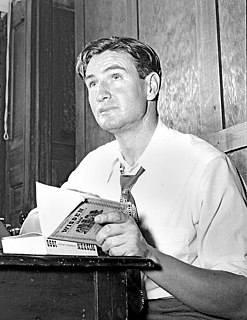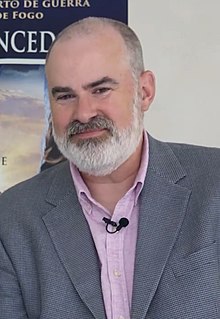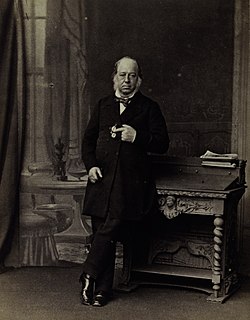A Quote by Keith Miller
I wrote a book called The Taste of New Wine because I couldn't find a book that talked about the reality of the situation and how we were dishonest and afraid.
Related Quotes
Well, at the end of our movie Fireproof, we released a book that my brother Stephen and I wrote called The Love Dare. It was for couples. That book had a much larger impact than we expected. As a matter of fact, if I could use the term "overwhelmed," we were. The book went on to become a New York Times bestseller and sold over five-million copies and is now in 28 different countries and languages. So, we were blessed and just surprised at how well that did.
I remember as a young child, during one of my frequent trips to the local library, spending hours looking at book after book trying in vain to find one that had my name on it. Because there were so many books in the library, with so many different names on them, I’d assumed that one of them — somewhere — had to be mine. I didn’t understand at the time that a person’s name appears on a book because he or she wrote it. Now that I’m twenty-six I know better. If I were ever going to find my book one day, I was going to have to write it.
Before I wrote The Power of Now, I had a vision that I had already written the book and that it was affecting the world. I had a sense there was already a book somehow in existence. I drew a circle on a piece of paper and it said "book." Then I wrote something about the effect the book had on the world, how it influenced my life and other people's lives, and how it came to be translated into many languages affecting hundreds of thousands of people.
When I was first writing 'Feed' - which was the first book I published as Mira - I talked about it very openly on my blog, on Twitter, that I was writing this book, and it wasn't until after it was sold that I said 'Mira Grant' wrote this book. And the reason there was really purely marketing-based.
There were a hundred booksellers in the old round city founded by the eighth-century caliph al-Mansur. The café and wine-drinking culture of Baghdad has been famous for centuries; there was a whole school of Iraqi poets who wrote poems about the wine bars of medieval Baghdad - the khamriyaat, or wine songs, that I quote in the book.
Because he did not have time to read every new book in his field, the great Polish anthropologist Bronislaw Malinowski used a simple and efficient method of deciding which ones were worth his attention: Upon receiving a new book, he immediately checked the index to see if his name was cited, and how often. The more "Malinowski" the more compelling the book. No "Malinowski", and he doubted the subject of the book was anthropology at all.
Every time I put a collection together I'd scrap it because there was no "meaning," until I wrote about the two black men - friends - in the beginning of the book. So much of their experience was ABOUT trying to find friends in the authors/artists I wrote about - subjects that were/are a source of comfort, somehow, since none of them "fit," either
A book no more contains reality than a clock contains time. A book may measure so-called reality as a clock measures so-called time; a book may create an illusion of reality as a clock creates an illusion of time; a book may be real, just as a clock is real (both more real, perhaps, than those ideas to which they allude); but let's not kid ourselves - all a clock contains is wheels and springs and all a book contains is sentences.
I am very bad at remembering the books I've read and so recently I had a wonderful experience. I decided I wanted to teach Toni Morrison's The Bluest Eye. I hadn't read it in twenty-five years. I was surprised to find how much I drew from that book. Stole from that book, learned from that book about writing. I had forgotten and there it was. Morrison has called that text faulted. I cannot see how.

































